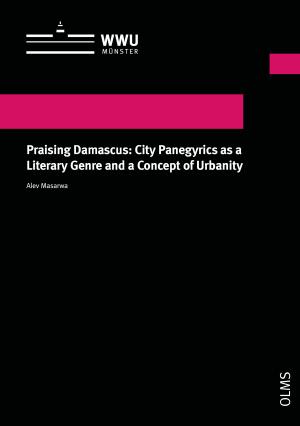Praising Damascus: City Panegyrics as a Literary Genre and a Concept of Urbanity
Schlagworte:
Städtelob, Damaskus/Bagdad in der Dichtung, Rangstreit, Städteparodie, mawāliyā, city panegyrics, Damascus praise in prose and poetry, mufāḫara, debate literature, faḍāʾil al-mudun, parodyÜber dieses Buch
Taking panegyric literature about Damascus as an example, this study discusses its literary elaboration and established motif traditions in relation to a wide range of textual representations of cities. The vast corpus of city panegyrics in prose and poetry gives testimony to the dynamics of urban life and urban consciousness, as it has also always been a source of civic pride and belonging. The vigorous form of aesthetic elaboration about cities was both persistent and open for contestation at the same time. A striking example, which attests to this contestation and the dynamics of city praise is a city-slam (mufāḫara / munāẓara) between Baghdad and Damascus, written in ca. 16th century Syria.
This study focuses on rhetorical elements and their inversion in the city praise rather than on the topographical history of Damascus or other featured cities. Exposing the aesthetic devices and analyzing their functions by inverting them according to the rules of poetic speech offers a convenient tool for a more adequate understanding of city panegyrics, and the cultural perception of cities. Panegyrics contain assertions relating both to praise and criticism. Hardly any literary city praise is a mere embellishment or a hymnody of the respective city, and hardly any form of dispraise is just a verbal outburst without offering a counterproposal.
Permalink
https://nbn-resolving.de/urn:nbn:de:hbz:6-32099577467
ISBN
978-3-487-16272-0 (Druckausgabe Georg Olms Verlag)
978-3-8405-0276-7 (elektronische Version)
Paperback, 108 Seiten



